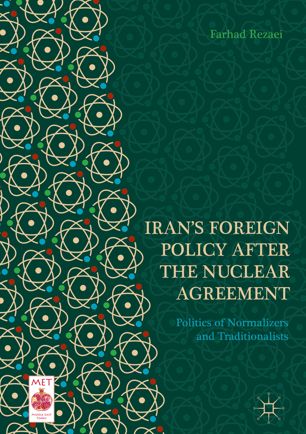

Most ebook files are in PDF format, so you can easily read them using various software such as Foxit Reader or directly on the Google Chrome browser.
Some ebook files are released by publishers in other formats such as .awz, .mobi, .epub, .fb2, etc. You may need to install specific software to read these formats on mobile/PC, such as Calibre.
Please read the tutorial at this link: https://ebookbell.com/faq
We offer FREE conversion to the popular formats you request; however, this may take some time. Therefore, right after payment, please email us, and we will try to provide the service as quickly as possible.
For some exceptional file formats or broken links (if any), please refrain from opening any disputes. Instead, email us first, and we will try to assist within a maximum of 6 hours.
EbookBell Team

0.0
0 reviewsThe book offers the first systematic account of Iran’s foreign policy following the nuclear agreement (JCPOA) of July 14, 2015. The author evaluates in what ways the JCPOA, in conjunction with the dramatic changes taking shape in the international order, have affected Iran’s foreign policy. Known as Normalizers, the moderate leadership under President Hassan Rouhani had planned to normalize Iran’s foreign relations by curtailing terrorism and reintegrate Iran into the community of nations. Their hardline opponents, the Principalists, rejected the JCPOA as a tool of subjection to the West and insisted on exporting the Islamist revolution, a source of much destabilization and terror in the region and beyond. The project also analyzes the struggle between Normalizers and their hardline opponents with regards to global and regional issues and Iran’s foreign policy towards global powers including the U.S., Russia, EU, and regional countries including Iraq, Syria, Israel, Saudi Arabia and Turkey.